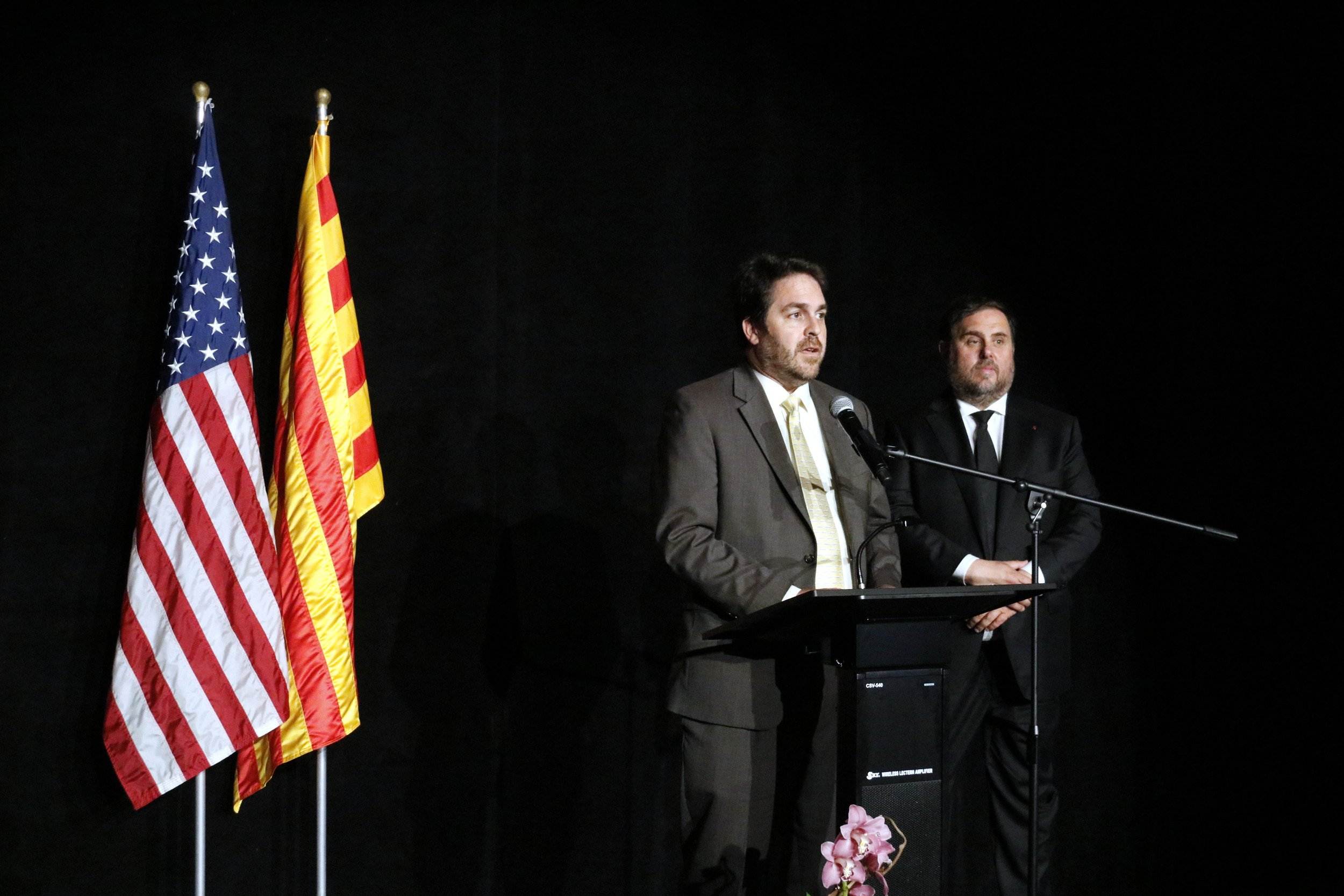One of the Spanish government's obsessions has been to end with all actions abroad by Catalonia. Since article 155 of the Spanish Constitution entered into effect, all the Catalan government's delegations abroad have been closed, except the one in Brussels, and there the head of the delegation was still fired. Also ordered was the closure of the Catalan Public Diplomacy Council (Diplocat). Six months later, however, despite there still being no government, proposals are starting to emerge to pick up where they left off in some areas of the world. This was seen in the United States this week with the birth of the Catalonia American Council (CAC).
The objective of the non-profit association is to strengthen ties between Catalonia and North America and end the current lack of interaction since the closure of the delegation, headquartered in Washington DC. It also aims to defend values shared by the two countries, including "freedom, democracy and self-government".
The driving force behind the council is Andrew Davis. He was previously head of the Catalan Delegation to the United States, Canada and Mexico from 2008 until being fired under article 155 last October. In comments to El Nacional, Davis explained that it is an idea he has been considering for some time and that now is a "good time" to realise it. Article 155 has meant Catalonia has stopped "interacting with North American actors interested in knowing what's happening there and what business opportunities there are", he said.
Filling the article 155 gap
A year ago, vice-president Oriol Junqueras visited Florida to take part in a collaboration agreement between Barcelona and Miami ports. Then, under article 155, "the Spanish government banned the port of Barcelona from taking part in international trade missions", as Davis noted. He said this was to the "detriment of commercial exchanges between Catalonia and America, to the detriment of some forty businesses which had co-organised the trip".
The CAC, however, doesn't aim to substitute the delegation, rather act as another tool for Catalonia to be able to explain "the reality to those interested in North America". According to Davis, when a new Catalan government is formed, it will have to decide "what role it wants to or can have abroad", but says that CAC will work beyond that, "strengthening transatlantic links".
It won't be, however, simply a tool for "strengthening economic exchange", but it also looks to emphasise "social, political, cultural and all types [of exchange] with those who show interest in doing so, from Washington and with an open mind". Davis said this includes offering information to those with "interest to find out about the Catalan situation" with regards the independence process.
Call for involvement
Andrew Davis will be the council's executive director and will work alongside Anselm Bossacoma, who has long experience in the United States working on business relations between that country and Catalonia. There will also be a board of directors "of North American professionals" and they have plans to create an external advisory board, according to Davis.
With respect to funding, it's a private initiative based on private donations, which they accept through their website. For the moment, they have received a number of "modest contributions from a handful of people via Twitter in an extraordinary response to CAC's first day of existence", says Davis. In fact, the council's official account, @catamcouncil, had obtained a thousand followers in its first three hours.
With this initiative, the first move is made towards reestablishing the diplomatic mission from Catalonia to the US to strengthen trade between the two countries. The first such mission dates back to 1797 (the third US Consulate to open in Europe) and it's a relationship which sees over 5 billion dollars of trade annually (4.2 billion€ ,£3.7 billion), since more than 500 Catalan companies operate in the US, and some 700 US businesses operate in Catalonia.

